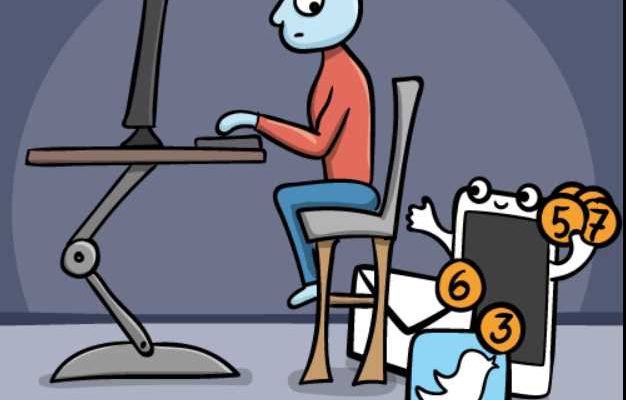Almost everyone is familiar with the term “procrastination”. No wonder: it’s considered that the manifestation of procrastination spoils the life of 95% of the population of the world, with about 20% of people being chronic procrastinators.
Not only books and films are devoted to this phenomenon but also the whole holiday: for example, in Britain there is a National Week of Procrastination! So what is this all the same – a natural part of human nature, or a manifestation of psychological problems? Are there positive aspects to procrastination? Or should it be feared?
What Is Procrastination?
Procrastination is a tendency to constantly consciously postpone things. In this case, important things are necessarily replaced by something non-urgent, or even something that could not be done at all. It’s believed that through procrastination manifests a kind of internal conflict.
What is the difference between procrastination and laziness? Are there any simple examples that help to distinguish one from the other?
Psychology sees laziness not as a feeling or character quality, but as a social construct. An unconscious resistance to doing something. Usually laziness, without understanding it, is called a range of emotional and psychological reasons for resistance: fear, anxiety, conflict, avoidance of manipulation, and so on. Procrastination is sometimes referred to as laziness due to a lack of understanding of the differences in these concepts:
- Laziness implies complete resistance to doing an action, while procrastination is temporary resistance, when a person is going to do a task, but then. In this case, the person doesn’t rest: instead of doing an important urgent task, he or she gambles at 22Bet Kenya or chats via Facebook.
- Idleness is freeing oneself from doing things. The state when the brain is not engaged in anything. According to research, the state when the brain is not in the phase of active information processing is important for the formation of long-term memories and for the structuring of thoughts. Perfect formats for idleness are sleep and a short leisurely walk outdoors. Purposeful idleness (when done deliberately and with pleasure, rather than suffering from procrastination) is beneficial. It increases creativity and helps you remember information better.
Causes of Procrastination
Procrastination can be caused by:
- Negative emotions related to the task and work you are procrastinating.
- Fear of negative feedback.
- Lack of motivation.
- Overwork.
- Abstract goals.
- Aversion to the task.
- Anxiety.
What Is the Danger of Procrastination? To What Consequences Can It Lead?
The greatest harm is that the procrastinator doesn’t rest, but spends energy on unnecessary actions (small non-urgent and unimportant tasks, scrolling through social networks, watching videos, etc.). At the same time, the stress of not doing what you need to do builds up. It’s better to replace procrastination with idleness.
Does procrastination have a silver lining? Is it necessary to fight it at all? And if so, how do you do it?
Procrastination is an internal conflict. And the only upside is that if you notice a desire to procrastinate and you’re worried about it – you need to deal with the causes, and perhaps even consult a psychologist or career counselor. You can fight it with time-management methods. For example:
- Break the big task into smaller subtasks (the “eat the elephant” or “Swiss cheese” method). This will give you the satisfaction of accomplishing small goals.
- Work in sprints, 25 minutes at a time. This is the “tomato method” – another time-management technique that involves cyclical work, where each cycle lasts 25 minutes, with mini-breaks in between.
- Another method of coping is to block temptations. Turn off notifications on your phone so they don’t distract you, remove factors that might tempt you to procrastinate.
- It’s also good to use outside control, such as from colleagues or a supervisor. You can even connect to “work/study with me” streamers, this will help you get a grip on yourself. You can also use trackers, reminders and other apps to help you focus.
- And the best way is to see a psychologist or career counselor. Perhaps your procrastination is your internal conflict about not really doing what you would like to do and you need to think about changing something in your job, function, career, in general.



